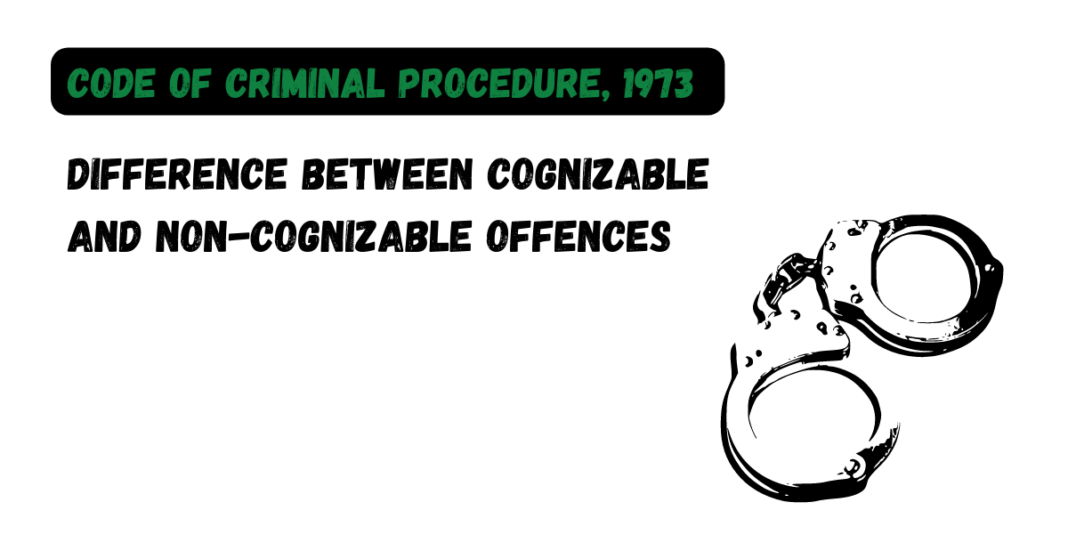| BASIS FOR COMPARISON | COGNIZABLE OFFENCES | NON-COGNIZABLE OFFENCES |
|---|---|---|
| Definition | An offence in which the police can arrest a person without a warrant and start an investigation without a court order. | An offence in which the police cannot arrest a person without a warrant and cannot investigate the case without a court order. |
| Police Powers | The police have the power to arrest a person without a warrant and can investigate the case without the need for a court order. | The police cannot arrest a person without a warrant, and cannot investigate the case without a court order. |
| Complaint | A complaint can be filed by the victim, a witness or a police officer who has knowledge of the offence. | The complaint must be filed by the victim or a person who has knowledge of the offence, and the police cannot register a First Information Report (FIR) without a court order. |
| Seriousness of Offence | Cognizable offences are considered to be more serious in nature than non-cognizable offences, and are usually punishable with imprisonment of 3 years or more. | Non-cognizable offences are considered to be less serious in nature than cognizable offences, and are usually punishable with imprisonment of less than 3 years. |
| Police Duty | The police have a duty to investigate cognizable offences and submit a charge sheet to the court within a specified period of time. | The police have no duty to investigate non-cognizable offences, but they can investigate if a court orders them to do so. |
| Court Proceedings | In a cognizable offence, the court can take cognizance of the offence based on the charge sheet filed by the police, and can proceed with the trial even if the victim or complainant does not appear in court. | In a non-cognizable offence, the court cannot take cognizance of the offence based on the complaint filed by the victim or complainant. The court can only initiate proceedings once the police submit a report to the court with the permission of the magistrate. |
| Examples | Examples of cognizable offences include serious crimes such as murder, rape, robbery, kidnapping, and terrorism. | Examples of non-cognizable offences include minor crimes such as simple hurt, cheating, defamation, and disobedience of a lawful order. |
Difference Between Cognizable and Non-cognizable Offences
- A word from our sponsors -





